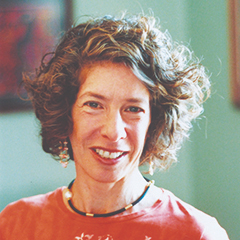This post by NCTE member Nancy Sommers was first shared in 2015.
In the September 2015 Teaching English in the Two-Year College, Nancy Sommers shares the double-life of a writer and ELA teacher in “Living Composition,” and she offers this insight about voice:
Over the years as my teaching and writing narratives intertwined, I pulled up my socks and worked across drafts, seeking a voice that could push against the either/or categories of being personal or being academic.
Voice is that elusive category we talk about with students—“find your voice,” we urge, as if they left it somewhere, in a dresser drawer, perhaps, as if they could purchase it on Amazon. But there is no lost and found drawer for voice, no way to shop for it, or stumble upon it. It is something you have to write your way into, something that takes practice and play, attempt after attempt, as you arrange the alphabet into comfortable shapes and sounds, listening for your own idiosyncratic take on the world.
I tell my students they can’t park their voice at the college gates; they can’t write as if they’re wearing someone else’s socks. I, too, had to learn that I couldn’t write in the meek voice of a girl who winds bobbins, nor in the strident voice of a feminist who storms the woodworking shop.
Part and parcel of who I am in the world is a teacher, and I want to write as I have come to teach: setting out on a quest, with leaps of faith and good humor, attempting, as essayists do, to figure something out, and always, always imagining an audience on the other end.

Nancy Sommers, lead author of the Diana Hacker handbooks (A Writer’s Reference, Rules for Writers, etc.), teaches writing and mentors new writing teachers at the Harvard Graduate School of Education.
It is the policy of NCTE in all publications, including the Literacy & NCTE blog, to provide a forum for the open discussion of ideas concerning the content and the teaching of English and the language arts. Publicity accorded to any particular point of view does not imply endorsement by the Executive Committee, the Board of Directors, the staff, or the membership at large, except in announcements of policy, where such endorsement is clearly specified.

